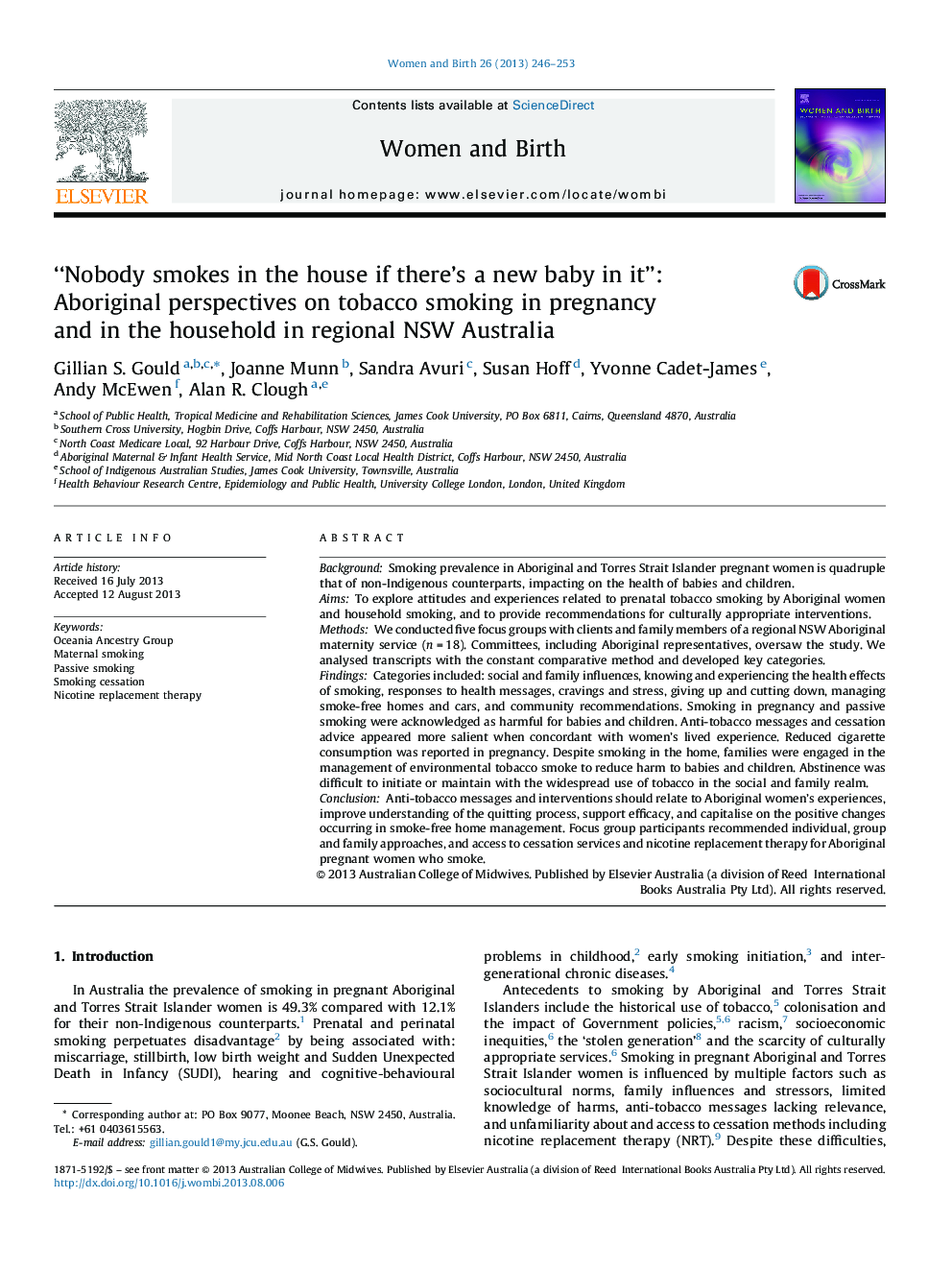| Article ID | Journal | Published Year | Pages | File Type |
|---|---|---|---|---|
| 2636149 | Women and Birth | 2013 | 8 Pages |
BackgroundSmoking prevalence in Aboriginal and Torres Strait Islander pregnant women is quadruple that of non-Indigenous counterparts, impacting on the health of babies and children.AimsTo explore attitudes and experiences related to prenatal tobacco smoking by Aboriginal women and household smoking, and to provide recommendations for culturally appropriate interventions.MethodsWe conducted five focus groups with clients and family members of a regional NSW Aboriginal maternity service (n = 18). Committees, including Aboriginal representatives, oversaw the study. We analysed transcripts with the constant comparative method and developed key categories.FindingsCategories included: social and family influences, knowing and experiencing the health effects of smoking, responses to health messages, cravings and stress, giving up and cutting down, managing smoke-free homes and cars, and community recommendations. Smoking in pregnancy and passive smoking were acknowledged as harmful for babies and children. Anti-tobacco messages and cessation advice appeared more salient when concordant with women's lived experience. Reduced cigarette consumption was reported in pregnancy. Despite smoking in the home, families were engaged in the management of environmental tobacco smoke to reduce harm to babies and children. Abstinence was difficult to initiate or maintain with the widespread use of tobacco in the social and family realm.ConclusionAnti-tobacco messages and interventions should relate to Aboriginal women's experiences, improve understanding of the quitting process, support efficacy, and capitalise on the positive changes occurring in smoke-free home management. Focus group participants recommended individual, group and family approaches, and access to cessation services and nicotine replacement therapy for Aboriginal pregnant women who smoke.
